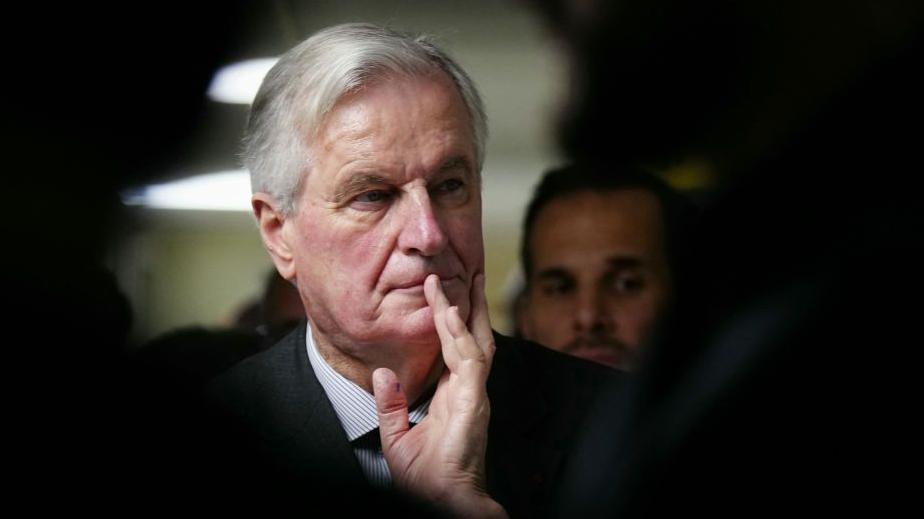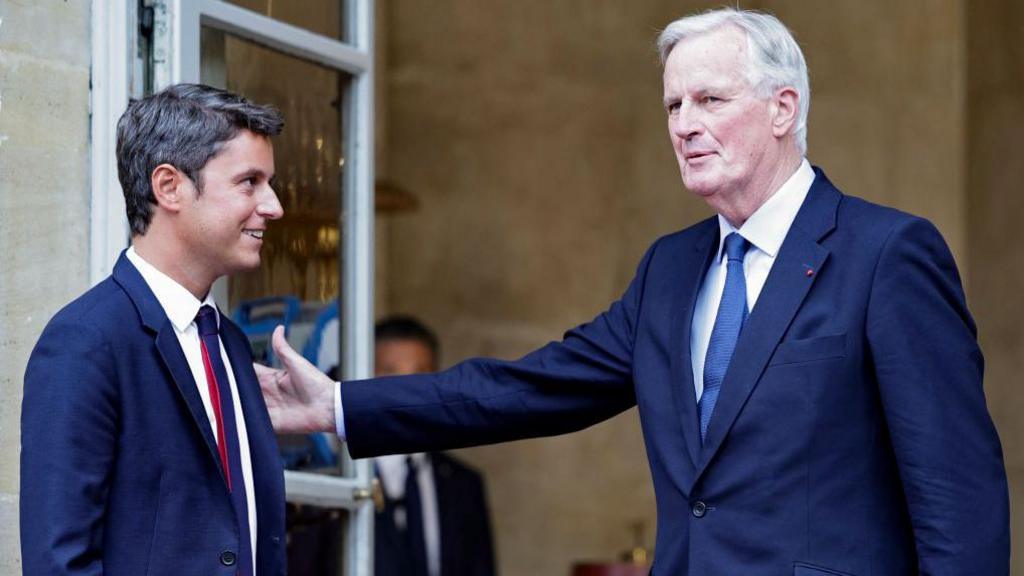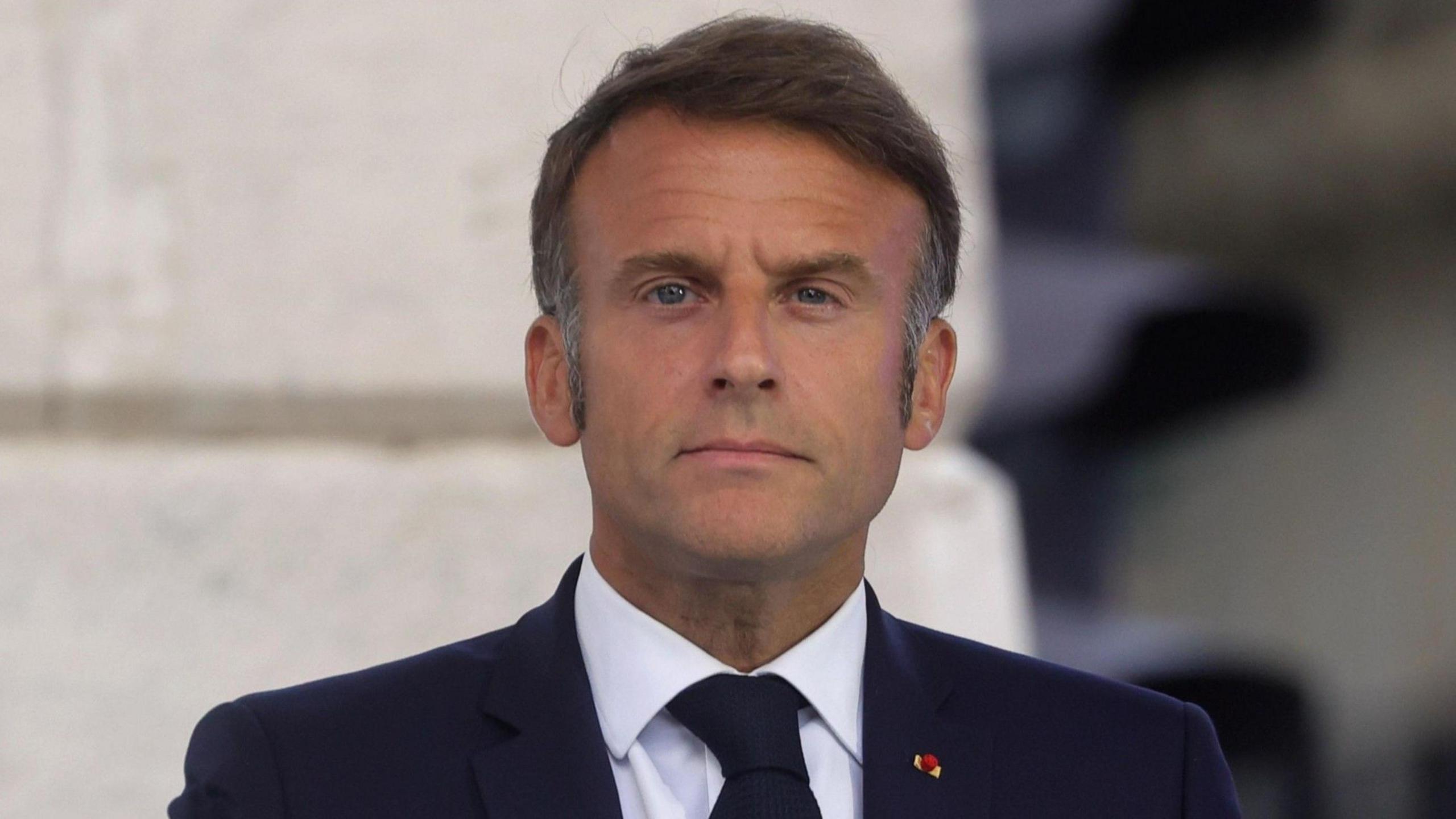Why French PM Barnier is set to lose no-confidence vote - and what happens next?

Michel Barnier runs the risk of becoming the shortest-serving French prime minister since 1958
- Published
What is happening in France?
A vote of no-confidence in the government headed by Prime Minister Michel Barnier is taking place at the French National Assembly at around 19:00 (18:00 GMT).
If - as expected - the vote goes through, the Barnier government will collapse.
Barnier, the former EU Brexit chief negotiator, was picked by President Emmanuel Macron to be prime minister just 90 days ago.
Macron, who is currently on a state visit to Saudi Arabia, has said he still believes the Barnier government can survive the vote. "The country's interests are more important than those of the parties," he said.
But the left-wing alliance New Popular Front (NFP) and Marine Le Pen's far-right National Rally (RN) MPs already said they will cast their ballots against him, making it mathematically impossible for Barnier to remain in place.
Why has this happened now?
On Monday, Barnier used special powers to push his 2025 budget through without parliamentary support.
He did so because he knew he had no chance to get the votes he needed from the opposition.
Barnier's decision to use special powers to pass the budget angered both the NFP and the RN, both of which tabled no-confidence motions against him.
Why did Barnier force through the budget?
Barnier, 73, has been governing on borrowed time since the day he became prime minister in early September.
This is because his appointment followed two months of political uncertainty sparked by inconclusive snap parliamentary elections, in which no party won enough seats to govern on its own.
He therefore presided over a polarised National Assembly.
His centrist party needed the support of at least one of the two big factions - the NFP or the National Rally (RN) - to pass legislation.
The NFP, whose own candidate for prime minister was rejected by Macron in the summer, was furious Barnier was appointed and promised to always vote against him. It also deemed Barnier's budget - which included €60bn (£49bn) in deficit reduction - unacceptable.
So the RN's goodwill has been necessary for the government to stay in place.
But when it came to the budget, and despite numerous concessions, the RN also said it would not endorse Barnier's bill.
Barnier therefore had no choice but to invoke special powers to push the budget through.
What happens next?
On Tuesday night, Barnier made a last-ditch attempt on national TV to convince MPs not to vote him down, calling for MPs to vote "beyond their political differences" and for a "common and superior interest".
However, it is expected that the motion will pass, leading to the collapse of the government. It would be the first time a French government has fallen to a no-confidence vote since 1962.
In that case, Barnier will likely be asked to stay on as caretaker as Macron seeks a new prime minister.
This proved difficult in the summer, when it took him two months to come up with a name that wouldn't immediately be shot down by one of the large parliamentary factions. The search for the next candidate could again take several weeks.
To fill the vacuum Macron could also appoint an unelected technocrat government - but these are often short-lived as they struggle to be seen as legitimate.
New elections are not an option as under the French constitution they cannot be called within a year of the previous polls, which took place last July.
What does this mean for Macron?
Several sides are calling for Macron - who is due to remain in post until 2027 - to resign.
But on Tuesday he made it clear he had no intention of doing this, saying that he would "honour [the trust of the French people]... until the very last second of my term to serve the country."
Related topics
- Published5 September 2024

- Published21 September 2024

- Published7 September 2024
